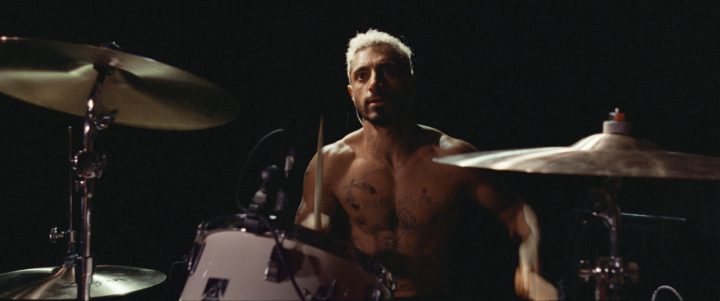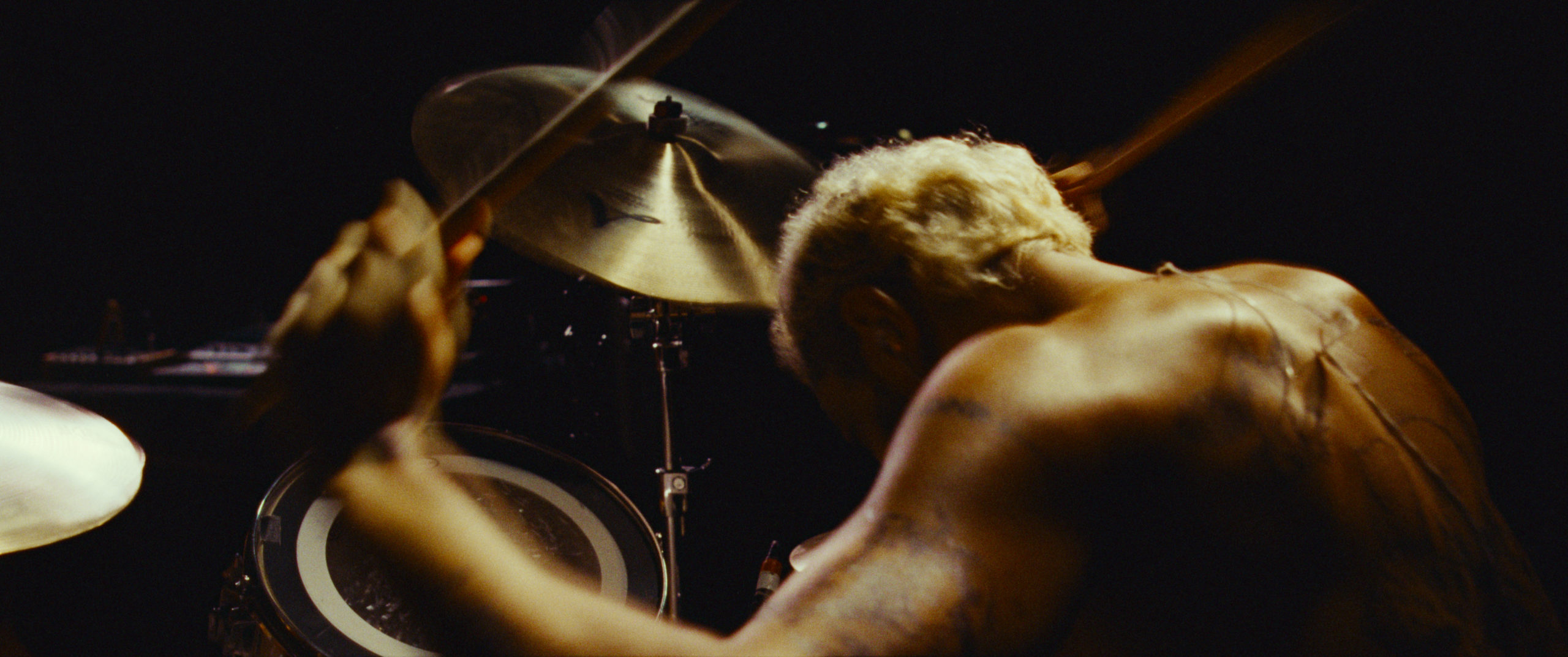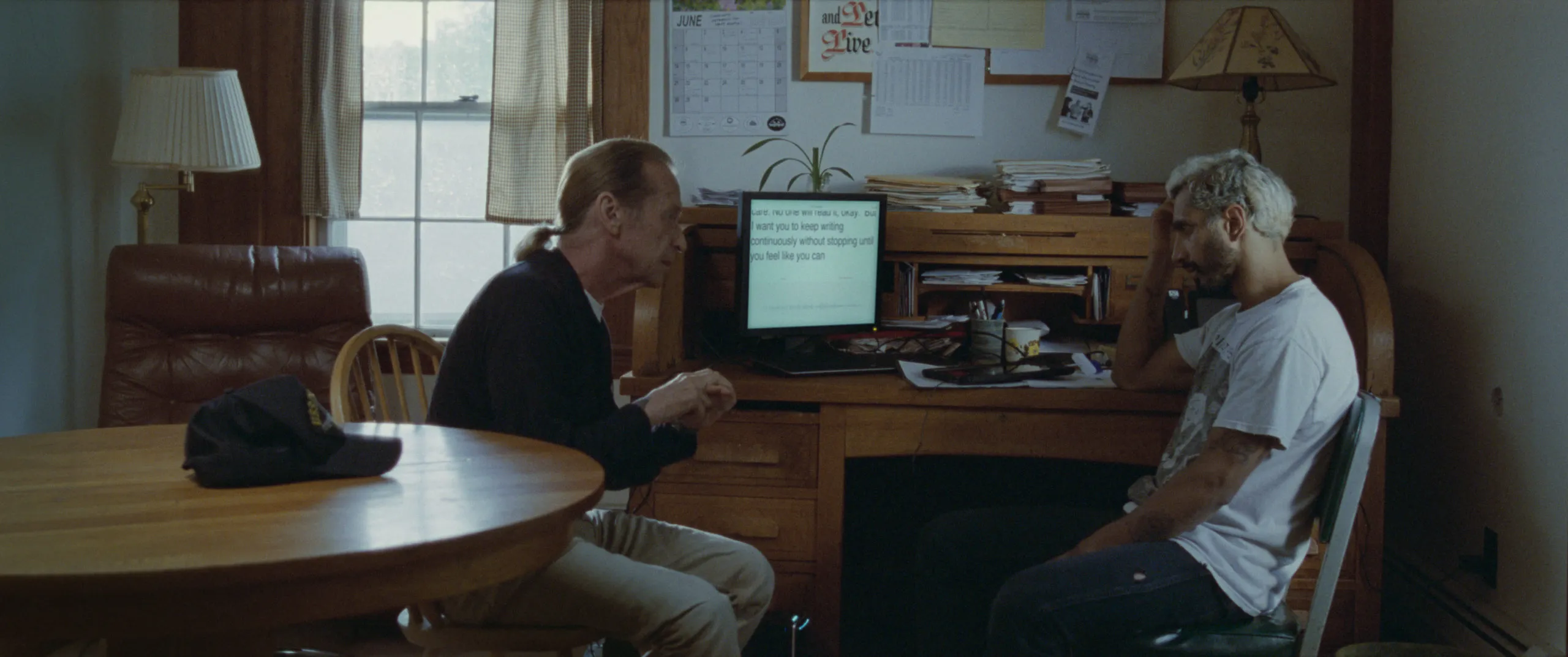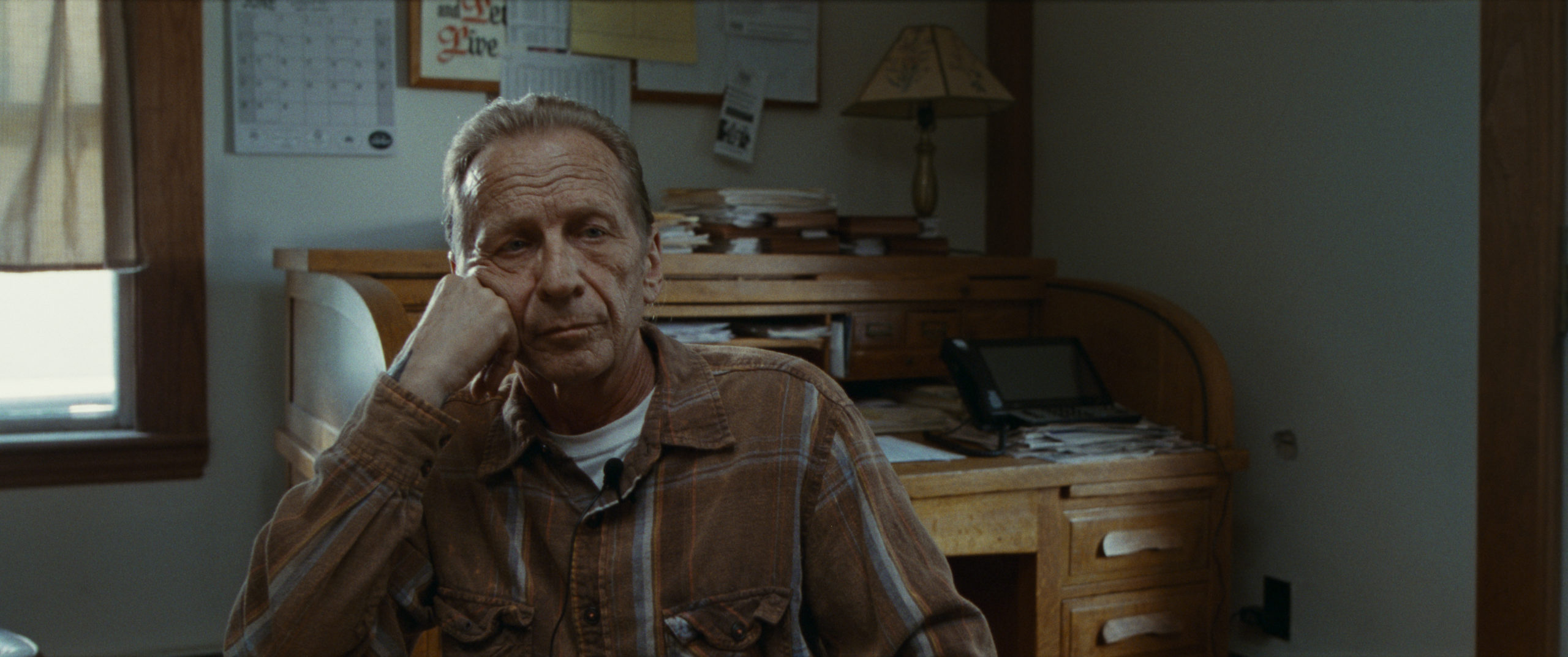SMALL SCREEN
This weekend we’re watching: Sound of Metal, a film about deafness, humility and the acceptance of life-altering change

Sound of Metal is an exceptional film about a drummer’s struggle to adapt to his sudden loss of hearing. Its creative use of sound design to create empathy and subjectivity won it well-deserved Oscars for sound and editing.
Sound of Metal: An evocative title with a clever double meaning, but one which may have misled a lot of people. Many potential viewers were likely scared off by the expectation of a movie about metal music, while some metal-heads might have been disappointed by the lack of it; so despite its exceptionally good critical reception, Sound of Metal only showed up on a lot of people’s radars when it was nominated for six Oscars or when it took home two last week – Best Film Editing and Best Sound.
In actuality, Sound of Metal is not about metal at all. There are a few minutes of it at the beginning, but even that is little more than texture that provides a jumping-off point for a film that is really about deafness, humility and the acceptance of life-altering change.
Sound of Metal is a 2020 drama starring Riz Ahmed as the drummer in a touring punk-metal duo, who one morning after a frenetic performance, begins to experience intermittent loss of hearing.

SOUND OF METAL, Courtesy of Amazon Studios
With the atonal crescendo of an electric guitar, the film fades in from black on Ruben, a young tattooed drummer sweating under the stage light, heaving with indistinct emotion that resembles anxiety as much as ecstasy.
Their music is extremely niche – alienating to most people. One might more accurately categorise it as noise-metal or avant-metal – dark desperate unrhyming vocal phrases over droning guitar and a frenzy of drums.
In the centre of this hysteria, Ruben finds a sweet spot between outrage and Zen, harnessing the aggressive release as a gateway to euphoric tranquillity; but as the dissonant wall of sound subsumes you, there comes the faint foreshadowing ringing of tinnitus …
It might seem obvious that a film about going deaf focuses keenly on sound, but in his feature film debut, director Darius Marder sought to do so using inspired, novel techniques. Background noise and loud grating sounds are embellished instead of smoothed out, so that quiet white noise, rather than being an annoyance takes on a sort of comforting symbolism which is distinct from the echoing emptiness of true silence.
By allowing the peripheral sounds of life to breathe and swell, the film feels so natural and candid. The crisp sound engineering develops our sensitivity to the multitude of small noises in each scene; so when Ruben wakes up to an ominous ringing in his head that muffles his hearing, the dampening of the usual noises of his life – the shower, the blender, the coffee filter – feels extremely uncomfortable. His stress is palpable as he struggles to stay calm and figure out what’s happening.
What won the film the Oscar for sound design is the empathy it achieves – the measured treatment of sound and silence supplements intimate camerawork and directing in portraying a highly personal perspective of Ruben’s experience of his deteriorating hearing.
The genius behind the audio-subjectivity of the film is head-Foley artist, Nicolas Becker. A Foley artist is someone who recreates sound effects for video in post-production.
To craft the sound of Ruben’s experience, Becker utilises similar organic techniques to those he used to create the sound of the inside of a spacesuit when he was Foley artist on the 2013 sci-fi thriller, Gravity.
He composed the score with an instrument called a baschet, which uses large metal structures to replicate the vibration of the eardrum. The baschet has been used to teach music to the hearing impaired because its rumbling vibrations allow them to feel the sound in their bodies. Ironically, in Sound of Metal, Becker uses it to teach those with hearing about the experience of those without.
The easiest way to describe colour to a person who has never seen it before is through the metaphorical use of the other senses. You might associate red with the emotion of anger, blue with a cool temperature or brown with a rough, earthy texture. To give a sense of what it’s like to be hearing impaired to a person who has always been able to hear, Becker uses a similar strategy.
Rather than cut the sound completely, he seamlessly blends the rumbling sonorous tones of the baschet with the deep muffled whooshing of Ruben’s perceived experience, to give a metaphorical insight into his perception of vibration, silence and disorientation.

SOUND OF METAL, Courtesy of Amazon Studios
Until Ruben learns sign language, there are no subtitles for it, which yet again puts us in Ruben’s shoes rather than permitting us an outside perspective. It’s also an interesting role reversal in that hearing viewers are on the outside, unable to communicate, rather than the hearing impaired.
In a scene at a deaf dinner table before he’s learned to sign, we switch between Ruben’s isolated experience and an outside view. Ruben’s experience is filmed up-close so that only a few other people are visible, and with focus on the foreground so that everyone else is blurred. What he perceives is little more than the thuds of people’s arms knocking on the table. From an outside perspective, we see a vibrant gathering of friends joking together to the sound of chewing and plates clinking.
The camera sometimes lingers at the end of a scene, capturing the aftermath of the action – another technique that makes a viewer feel as though they’re a fly on the wall of a character’s experience. It’s a long film, and it feels even longer than it is because it captures the sense of time passing in Ruben’s story. That a two-hour film with so many atmospheric and artistic shots received the Oscar for editing is an indication of how much thought and care that went into every moment.
The deterioration of Ruben’s hearing represents a profound identity crisis. Metal is his identity, as well as his livelihood, and his mounting frustration manifests in outbursts at his girlfriend and bandmate, Lou, played superbly by Olivia Cooke.
The chemistry between Ruben and Lou is spellbinding. Whether in their moments of codependence or touching tenderness, their relationship dynamic is beautifully natural.
Ruben is a recovering addict, so Lou, worried that the loss of his hearing is potentially a catalyst for relapse, convinces him to seek help at a shelter for deaf addicts, run by a no-nonsense recovering alcoholic named Joe, who lost his hearing in the Vietnam war.
It took Marder 12 years to make Sound of Metal the way he envisioned it, and much of that time was spent looking for the right person to play Joe. Several high-profile actors were considered for the role, but when Marder stumbled upon Paul Raci, he instantly knew he’d found the one. Raci is a CODA (child of deaf adults) so American Sign Language is his mother tongue, and he also did military service twice in Vietnam.

SOUND OF METAL, Courtesy of Amazon Studios

SOUND OF METAL, Courtesy of Amazon Studios
But of course, the ultimate find was Riz Ahmed. Ahmed had already featured in some Hollywood hits like Jason Bourne and Venom but without a doubt, Sound of Metal is his breakout performance. Ahmed felt huge pressure to properly represent the deaf community, recovering addicts and even metalheads. He spent eight months preparing for the role for eight hours a day – two hours of drum lessons, two hours of American Sign Language, two hours with a personal trainer, two hours with an acting coach, and sat in on narcotics anonymous meetings on weekends. By the end of it, he practically was Ruben.
The crux of Ruben’s character arc is whether or not he will be able to adapt to such a sudden change and redefine himself. Ruben is positioned at the centre of the ideological debate about whether deafness is an identity or a correctable handicap. The film has been criticized for allegedly perpetuating a false dichotomy between seeking corrective surgery and acceptance into the deaf community, but in general, it seems to have been embraced by the deaf community in a big way.
Sound of Metal is not exactly a feel-good film but Ruben’s emotionally raw character transformation is extremely moving. Its simple thought-provoking ending is fitting for a movie so powerful and sincere. DM/ ML
Sound of Metal is available in South Africa on Prime Video.
You can contact This Weekend We’re Watching via [email protected]

















 Become an Insider
Become an Insider
Comments - Please login in order to comment.